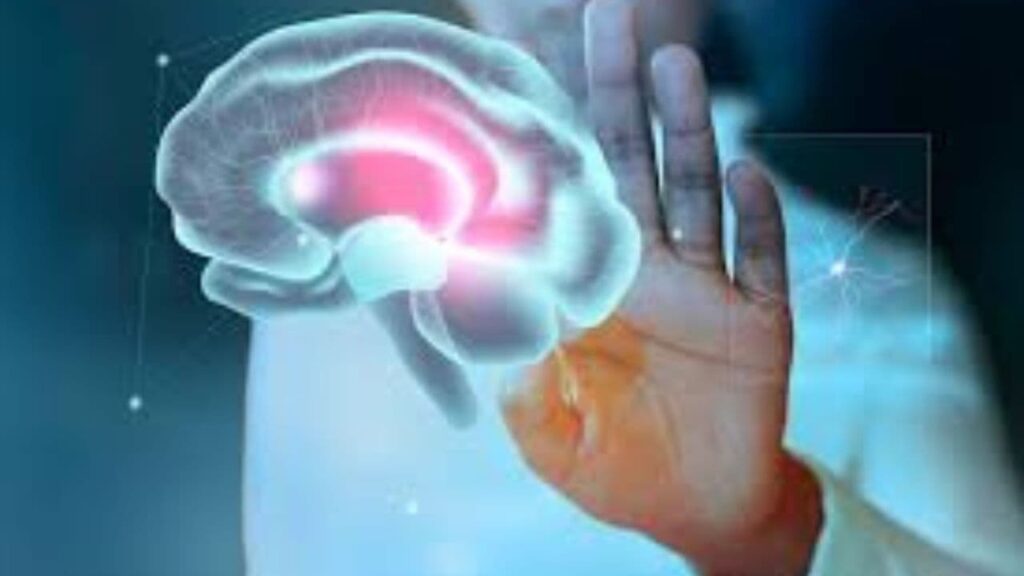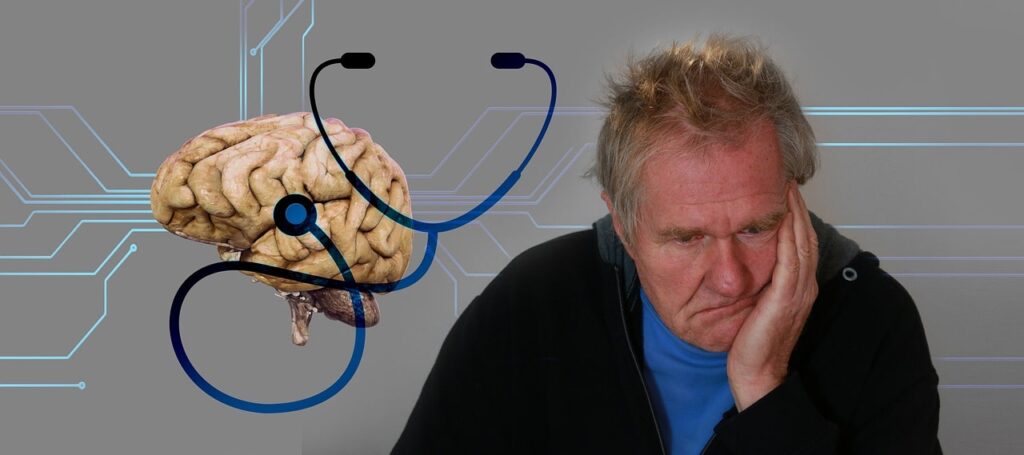What is Alzheimer’s Disease?
Alzheimer’s disease is a type of dementia that primarily affects memory, thinking, and behavior. It is defined by the accumulation of aberrant protein deposits in the brain, which cause brain cells and cognitive function to slowly decline. People may find it difficult to communicate, perform daily duties, and finally lose their capacity to take care of themselves as the disease develops. In this article we will explore Alzheimer’s disease stages and more.
Definition
Alzheimer’s disease is defined as a progressive brain disorder that gradually destroys memory and cognitive abilities, eventually impairing the ability to carry out simple tasks. It is the most common cause of dementia among older adults, accounting for approximately 60-80% of cases.
Symptoms
The symptoms of each Alzheimer’s disease stages typically develop slowly and worsen over time. Common signs and symptoms include:
- Memory loss, especially of recent events or conversations
- Difficulty with problem-solving and planning
- Confusion about time or place
- Challenges with language, such as finding the right words
- Changes in mood or personality
- Withdrawal from social activities
- Difficulty with coordination and motor skills in later stages
Treatment
While there is currently no cure for Alzheimer’s disease, various treatment options can help manage symptoms and improve quality of life. These may include:
- Medications: Many drugs, such as memantine and cholinesterase inhibitors, are available to help in controlling memory symptoms and reduce the disease’s course.
- Therapy: People with Alzheimer’s disease can benefit from occupational therapy, speech therapy, and other types of therapy to help them deal with memory problems and keep their independence.
- Supportive care: Alzheimer’s patients and their families can benefit greatly from care support programs, assisted living communities, and temporary care.
Alzheimer’s disease stages
Alzheimer’s disease stages, each characterized by specific symptoms and challenges:
- Preclinical Stage: Although there may not be any outward signs in the preclinical stage, Alzheimer’s disease-related brain changes are still occurring. This Alzheimer’s disease stage may last for years or even decades before symptoms become apparent.
- Mild Cognitive Impairment (MCI): MCI, which is sometimes regarded as an early stage of Alzheimer’s disease, is characterized by evident but mild memory and mental disorders that do not substantially interfere with day-to-day functioning. Not all individuals with MCI will develop Alzheimer’s disease, but it is considered a risk factor.
- Mild Alzheimer’s Disease: In the mild Alzheimer’s disease stage, symptoms become more pronounced, and individuals may have difficulty with tasks such as managing finances, remembering recent events, or planning activities. Memory loss and confusion become more evident, although individuals can still function independently with some assistance.
- Moderate Alzheimer’s Disease: This Alzheimer’s disease stage progresses to the moderate stage, individuals experience more significant cognitive decline and may require more assistance with daily activities. Memory loss worsens, and individuals may become disoriented or lost even in familiar surroundings. Behavioral symptoms such as agitation, aggression, and wandering may also emerge.
- Severe Alzheimer’s Disease: In the severe Alzheimer’s disease stag, individuals lose the ability to communicate effectively, recognize loved ones, or perform basic tasks independently. They may require full-time care and assistance with all aspects of daily living. Physical health decline, including susceptibility to infections, is common in this stage.
Medication
Several medications are commonly prescribed to manage symptoms and slow the progression of Alzheimer’s disease stages. These include:
- Cholinesterase inhibitors: These drugs, such as donepezil, rivastigmine, and galantamine, work by increasing levels of acetylcholine, a neurotransmitter involved in memory and learning.
- Memantine: Memantine is an N-methyl-D-aspartate (NMDA) receptor antagonist that helps regulate glutamate activity in the brain, thereby improving cognitive function and reducing symptoms of Alzheimer’s disease stages.
Causes
The exact cause of Alzheimer’s disease is not fully understood, but a combination of genetic, environmental, and lifestyle factors is believed to play a role. Risk factors for Alzheimer’s disease include:
- Age: Advanced age is the most significant risk factor for Alzheimer’s disease, with the majority of cases occurring in individuals over 65 years old.
- Genetics: While most cases of Alzheimer’s disease are sporadic, certain genetic mutations, such as those in the genes for amyloid precursor protein (APP), presenilin 1 (PSEN1), and presenilin 2 (PSEN2), can increase the risk of developing the disease.
- Family history: Individuals with a family history of Alzheimer’s disease are at a higher risk of developing the condition themselves.
- Lifestyle factors: Factors such as physical inactivity, poor diet, smoking, and chronic conditions like diabetes or cardiovascular disease may increase the risk of Alzheimer’s disease stages.
Alzheimer’s Disease vs. Dementia
Alzheimer’s disease is often used interchangeably with dementia, but they are not the same. Dementia is a broader term that encompasses a range of cognitive disorders characterized by memory loss and impairment in other cognitive functions. Alzheimer’s disease is the most common cause of dementia, accounting for the majority of cases.

Alzheimer’s Disease ICD 10
In the International Classification of Diseases, 10th Revision (ICD-10), Alzheimer’s disease is classified under code G30. This code is used to document diagnoses of Alzheimer’s disease for healthcare purposes and research.
Alzheimer’s Cure
As of now, there is no cure for Alzheimer’s disease. However, ongoing research efforts are focused on understanding the underlying mechanisms of the disease, identifying potential treatment targets, and developing new therapeutic approaches. Clinical trials are underway to test promising drugs and interventions aimed at slowing or halting the progression of Alzheimer’s disease.
Alzheimer’s Disease Research
Research into Alzheimer’s disease stages is a rapidly evolving field, with ongoing studies exploring various aspects of the disease, including its causes, risk factors, diagnostic methods, and treatment options. Some areas of current research include:
- Biomarkers: Researchers are investigating biomarkers, such as amyloid-beta and tau proteins in the brain and cerebrospinal fluid, as potential indicators of Alzheimer’s disease risk and progression.
- Genetics: Genome-wide association studies (GWAS) are identifying genetic variants associated with Alzheimer’s disease risk, providing insights into the underlying genetic mechanisms of the disease.
- Therapeutic targets: Novel drug targets, such as inflammation, oxidative stress, and synaptic dysfunction, are being explored for their potential to modulate the progression of Alzheimer’s disease and improve cognitive function.
- Lifestyle interventions: Studies are examining the impact of lifestyle factors, such as diet, exercise, cognitive stimulation, and social engagement, on reducing the risk of different Alzheimer’s disease stages and delaying its onset.
Alzheimer’s Prevention
While there is no guaranteed way to prevent Alzheimer’s disease, adopting a healthy lifestyle may help reduce the risk of developing the condition. Strategies for Alzheimer’s prevention include:
- Regular exercise: Physical activity has been shown to reduce the risk of cognitive decline and Alzheimer’s disease by improving cardiovascular health, promoting neuroplasticity, and reducing inflammation.
- Healthy diet: Following a balanced diet rich in fruits, vegetables, whole grains, lean proteins, and healthy fats may help protect against Alzheimer’s disease by providing essential nutrients and antioxidants that support brain health.
- Mental stimulation: Engaging in mentally stimulating activities, such as reading, puzzles, learning new skills, and socializing, can help maintain cognitive function and reduce the risk of Alzheimer’s disease.
- Managing chronic conditions: Proper management of chronic conditions such as diabetes, hypertension, and high cholesterol can help reduce the risk of Alzheimer’s disease stage by minimizing vascular risk factors and promoting overall health.
Alzheimer’s pathophysiology
The pathophysiology of Alzheimer’s disease involves complex interactions between genetic, environmental, and molecular factors that ultimately lead to neuronal dysfunction and death. Key pathological features of Alzheimer’s disease include:
- Amyloid plaques: Accumulation of beta-amyloid protein fragments in the brain, leading to the formation of insoluble plaques that disrupt neuronal communication and contribute to cell death.
- Neurofibrillary tangles: Aggregation of hyperphosphorylated tau protein within neurons, causing structural abnormalities and impairing neuronal function.
- Neuroinflammation: Activation of immune cells and release of inflammatory mediators in response to amyloid deposition, contributing to neuronal damage and cognitive decline.
- Synaptic dysfunction: Disruption of synaptic connections between neurons, leading to impaired neurotransmission and cognitive deficits.
Alzheimer’s Diagnosis
Diagnosing Alzheimer’s disease stages involves a comprehensive evaluation of symptoms, medical history, cognitive testing, and imaging studies. Important steps in the process of diagnosis include:
- Medical history: A thorough review of the patient’s medical history, including family history of dementia and other relevant factors, can provide valuable insights into the underlying cause of cognitive symptoms.
- Cognitive testing: Standardized cognitive tests, such as the Mini-Mental State Examination (MMSE) or the Montreal Cognitive Assessment (MoCA), can assess various domains of cognitive function, including memory, attention, language, and visuospatial abilities.
- Imaging studies: Brain imaging techniques, such as magnetic resonance imaging (MRI) and positron emission tomography (PET), can help detect structural changes, such as brain atrophy or abnormal protein deposition, associated with Alzheimer’s disease stages.
- Biomarker testing: Analysis of cerebrospinal fluid biomarkers, such as amyloid-beta and tau proteins, or imaging biomarkers, such as amyloid PET scans, may help support the diagnosis of Alzheimer’s disease and differentiate it from other causes of dementia.
Alzheimer’s Disease Hereditary
While most cases of Alzheimer’s disease are sporadic and not directly inherited, genetic factors can play a role in certain cases. Familial Alzheimer’s disease (FAD) accounts for a small percentage of cases and is caused by inherited mutations in specific genes, such as APP, PSEN1, and PSEN2. Individuals with a family history of FAD have a higher risk of developing the disease themselves, although not all cases of familial Alzheimer’s disease are directly inherited.
Alzheimer’s disease is a complex and devastating condition that affects millions of individuals worldwide. Understanding Alzheimer’s disease stages, from its early preclinical phase to severe cognitive decline, is essential for early detection, intervention, and support. While there is currently no cure for Alzheimer’s disease, ongoing research efforts hold promise for future treatments and interventions that may slow or halt the progression of this devastating condition. By raising awareness, promoting research, and supporting individuals and families affected by any Alzheimer’s disease stages, we can work towards a future without this debilitating illness.



